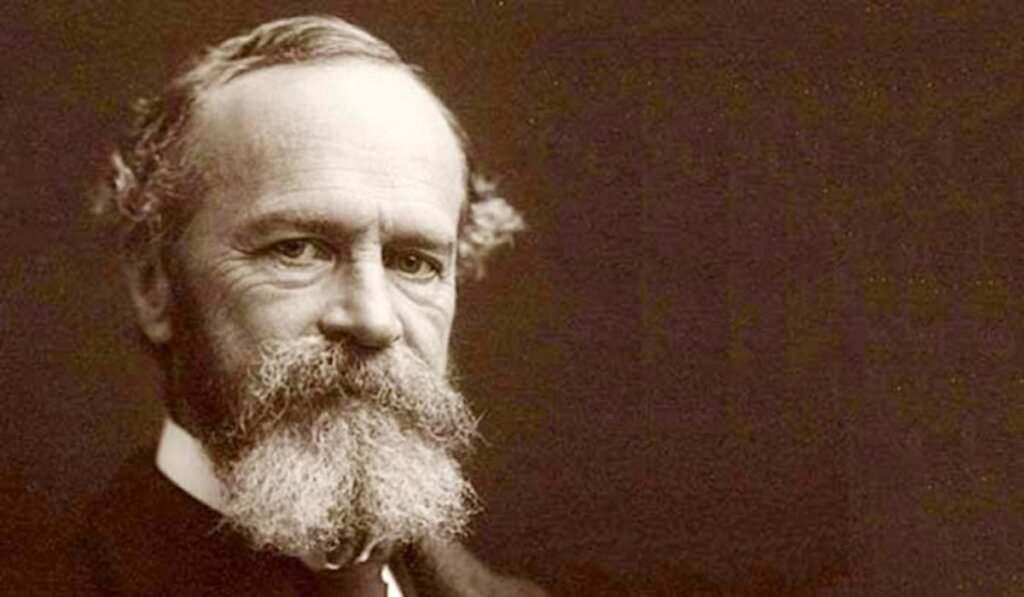William James and His Formula for Boosting Self-Esteem


Written and verified by the psychologist Valeria Sabater
How many goals and dreams have you achieved in your life? As a human being, nothing is as important for you as feeling competent and achieving what you want. However, it’s not always possible to succeed in every challenge you set for yourself. After all, you’re not a superhero with extraordinary powers nor do you have a magic lamp with a genie inside.
The magical element that makes the task of achieving what you want so much easier is your self-esteem. In fact, this dimension can be defined as the cornerstone of your psychological well-being. Without it, you stumble and fail and your human values become blurred. Indeed, it doesn’t only consist of the ability to love and respect yourself.
As a matter of fact, self-esteem is also the confidence you have in yourself to be who you really want to be. A self-realized and independent person who achieves their goals and builds the kind of life that makes them happy.
One of the first figures in psychology to examine this construct was William James. It was in 1890, when he published The Principles of Psychology, that he developed a formula for evaluating self-esteem.
“There is but one cause of human failure. And that is man’s lack of faith in his true Self.”
–William James-

William James’ formula for boosting self-esteem
A little-known fact about William James is that, during his youth, he considered taking his own life. Moreover, he spent many years suffering from strange illnesses and notable sufferings and was even partially deaf.
His father was a theologian belonging to the upper bourgeoisie. Therefore, everyone expected a lot from William and his brother, the writer, Henry James. Thanks to an act of introspection, William finally told himself that his melancholy wasn’t normal. He felt he must be suffering from some kind of illness.
This awakened an interest and a goal within him. He set himself the task of trying to understand the mechanisms that governed the mind and soul. Therefore, he decided to train in psychology and philosophy.
In his best-known work, The Principles of Psychology (1890), James provided one of the main definitions of self-esteem. He conceptualized it through a formula that, even now, is both interesting and practical. For William James, well-being was based on the aspirations we have and the achievements we’re capable of.
Let’s take a closer look at his well-known formula for boosting self-esteem.
For William James, self-esteem was based on the following formulation: Self-esteem equals success divided by our pretensions. (In this case, pretensions referred to goals and values).
It matters what you do, not so much what you are
Many teens today link their self-esteem to their body image. They assume that having good self-esteem means accepting themselves as they are. However, although it’s true that this construct includes physical self-acceptance, there are many more areas that make it up and that shouldn’t be neglected.
William James insisted that happiness and well-being start from what you do in life. It doesn’t matter who you are or what you’re like, it only matters what you do with your life. That’s the greatest responsibility of all.
- You must ask yourself what you like and what you’re good at. Only then will you be able to direct all your energies toward your goals. James found meaning in his life at the precise moment he clarified his aim of wanting to uncover the mysteries of the human mind.
- James insisted that there always comes a time in your existence when you must ask yourself what will act as your salvation. That’s the moment you’ll find the best motivator to grow as a person.

Be realistic in your claims
William James’ formula for boosting self-esteem is the ratio between successes and aspirations. In other words, as you conquer the goals to which you aspire, your self-esteem rises. But be careful, because often your expectations or dreams can be unrealistic, and failure undermines the positive vision you have of yourself.
So avoid setting goals that are too high or clearly impossible. It’s good to have aspirations, but try and make them fit your own skills and abilities.
As William James explained in The Principles of Psychology, many people spend their efforts on tasks that don’t correspond to their strengths, and then everything falls apart. But by setting sensible goals, with each achievement, your self-esteem will grow. Then, you can increase the challenges. That’s how you’ll achieve excellence.
Sometimes, you put completely unrealistic dreams into your mind. Moreover, they have little to do with your abilities. You must be consistent and focus on realistic goals that match your worth. Only then will you achieve success and your self-esteem will remain strong and healthy.
Go beyond fear and remember your strengths
In his book, The Optimistic Child (2011), Martin Seligman talks about William James’ formula for boosting self-esteem. He also suggests that parents and educators should promote their children’s self-efficacy and self-confidence. If they learn from an early age that they’re capable of performing tasks on their own, they’ll feel competent and develop a positive self-image.
As a human being, you’re forced to overcome endless difficulties and fears on a daily basis. You’ll fail in many of your challenges. There’ll even be dreams you must put aside in favor of others. However, it’s essential that you trust in your worth and strengths. You are what you achieved in the past and also what you’re proposing now.
So, when you feel stuck and distrust yourself, it’s worth looking back. After all, you’ve had more than one success in the past and you possess skills in more than one area. So why not trust in your strengths again and set yourself new challenges? According to William James, self-esteem requires action and movement. Surely it’s time you made a start.
How many goals and dreams have you achieved in your life? As a human being, nothing is as important for you as feeling competent and achieving what you want. However, it’s not always possible to succeed in every challenge you set for yourself. After all, you’re not a superhero with extraordinary powers nor do you have a magic lamp with a genie inside.
The magical element that makes the task of achieving what you want so much easier is your self-esteem. In fact, this dimension can be defined as the cornerstone of your psychological well-being. Without it, you stumble and fail and your human values become blurred. Indeed, it doesn’t only consist of the ability to love and respect yourself.
As a matter of fact, self-esteem is also the confidence you have in yourself to be who you really want to be. A self-realized and independent person who achieves their goals and builds the kind of life that makes them happy.
One of the first figures in psychology to examine this construct was William James. It was in 1890, when he published The Principles of Psychology, that he developed a formula for evaluating self-esteem.
“There is but one cause of human failure. And that is man’s lack of faith in his true Self.”
–William James-

William James’ formula for boosting self-esteem
A little-known fact about William James is that, during his youth, he considered taking his own life. Moreover, he spent many years suffering from strange illnesses and notable sufferings and was even partially deaf.
His father was a theologian belonging to the upper bourgeoisie. Therefore, everyone expected a lot from William and his brother, the writer, Henry James. Thanks to an act of introspection, William finally told himself that his melancholy wasn’t normal. He felt he must be suffering from some kind of illness.
This awakened an interest and a goal within him. He set himself the task of trying to understand the mechanisms that governed the mind and soul. Therefore, he decided to train in psychology and philosophy.
In his best-known work, The Principles of Psychology (1890), James provided one of the main definitions of self-esteem. He conceptualized it through a formula that, even now, is both interesting and practical. For William James, well-being was based on the aspirations we have and the achievements we’re capable of.
Let’s take a closer look at his well-known formula for boosting self-esteem.
For William James, self-esteem was based on the following formulation: Self-esteem equals success divided by our pretensions. (In this case, pretensions referred to goals and values).
It matters what you do, not so much what you are
Many teens today link their self-esteem to their body image. They assume that having good self-esteem means accepting themselves as they are. However, although it’s true that this construct includes physical self-acceptance, there are many more areas that make it up and that shouldn’t be neglected.
William James insisted that happiness and well-being start from what you do in life. It doesn’t matter who you are or what you’re like, it only matters what you do with your life. That’s the greatest responsibility of all.
- You must ask yourself what you like and what you’re good at. Only then will you be able to direct all your energies toward your goals. James found meaning in his life at the precise moment he clarified his aim of wanting to uncover the mysteries of the human mind.
- James insisted that there always comes a time in your existence when you must ask yourself what will act as your salvation. That’s the moment you’ll find the best motivator to grow as a person.

Be realistic in your claims
William James’ formula for boosting self-esteem is the ratio between successes and aspirations. In other words, as you conquer the goals to which you aspire, your self-esteem rises. But be careful, because often your expectations or dreams can be unrealistic, and failure undermines the positive vision you have of yourself.
So avoid setting goals that are too high or clearly impossible. It’s good to have aspirations, but try and make them fit your own skills and abilities.
As William James explained in The Principles of Psychology, many people spend their efforts on tasks that don’t correspond to their strengths, and then everything falls apart. But by setting sensible goals, with each achievement, your self-esteem will grow. Then, you can increase the challenges. That’s how you’ll achieve excellence.
Sometimes, you put completely unrealistic dreams into your mind. Moreover, they have little to do with your abilities. You must be consistent and focus on realistic goals that match your worth. Only then will you achieve success and your self-esteem will remain strong and healthy.
Go beyond fear and remember your strengths
In his book, The Optimistic Child (2011), Martin Seligman talks about William James’ formula for boosting self-esteem. He also suggests that parents and educators should promote their children’s self-efficacy and self-confidence. If they learn from an early age that they’re capable of performing tasks on their own, they’ll feel competent and develop a positive self-image.
As a human being, you’re forced to overcome endless difficulties and fears on a daily basis. You’ll fail in many of your challenges. There’ll even be dreams you must put aside in favor of others. However, it’s essential that you trust in your worth and strengths. You are what you achieved in the past and also what you’re proposing now.
So, when you feel stuck and distrust yourself, it’s worth looking back. After all, you’ve had more than one success in the past and you possess skills in more than one area. So why not trust in your strengths again and set yourself new challenges? According to William James, self-esteem requires action and movement. Surely it’s time you made a start.
All cited sources were thoroughly reviewed by our team to ensure their quality, reliability, currency, and validity. The bibliography of this article was considered reliable and of academic or scientific accuracy.
- Hewitt, J.P., (2005). The social construction of self-esteem. In Snyder, C.R., & Lopez, S.J. (Eds.), Handbook of Positive Psychology (pp.135-148). New York : Oxford University
- Leary, M.R., Tambor, E.S., Terdal, S.K. & Downs D.L. (1995). Self-esteem as an interpersonal monitor: The sociometer hypothesis. Journal of Personality and Social Psychology, 68 (3), pp. 518-530
- PressKling, K. C., Hyde, J. S., Showers, C. J., & Buswell, B. N. (1999). Gender differences in self-esteem: A meta-analysis. Psychological Bulletin, 125(4), pp. 470-500.
This text is provided for informational purposes only and does not replace consultation with a professional. If in doubt, consult your specialist.







